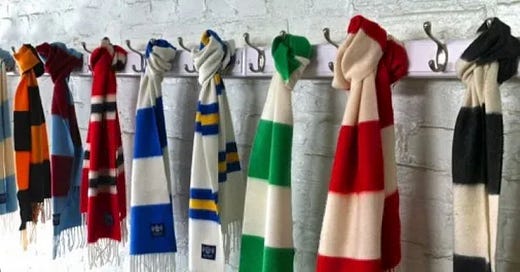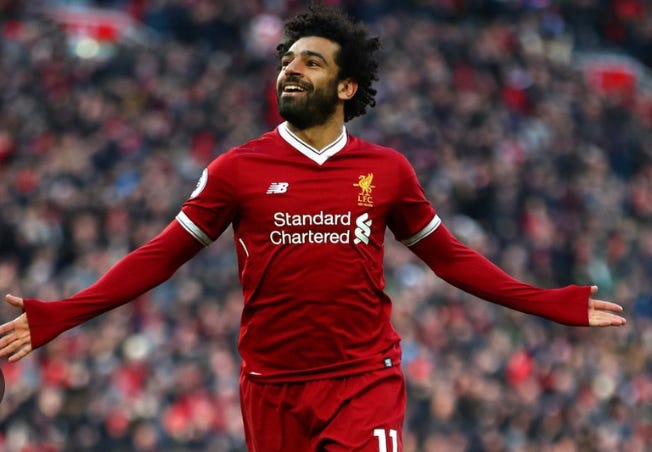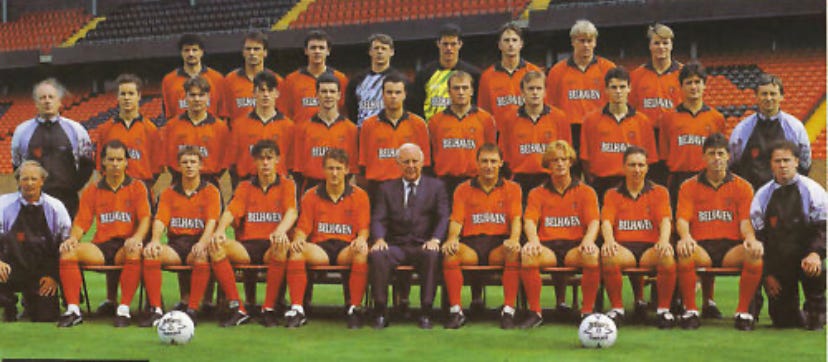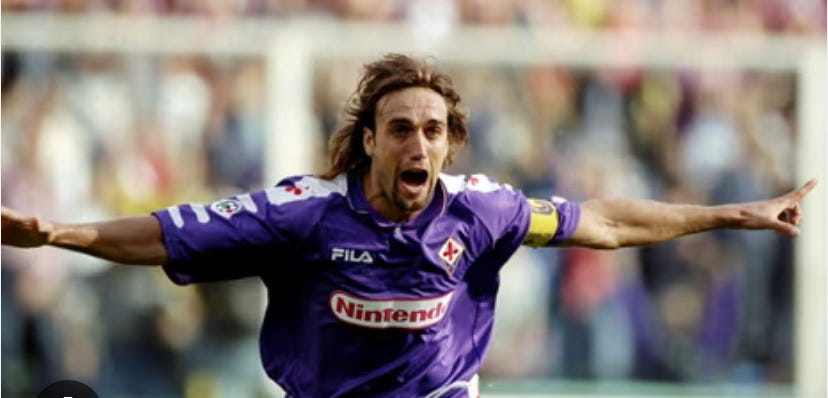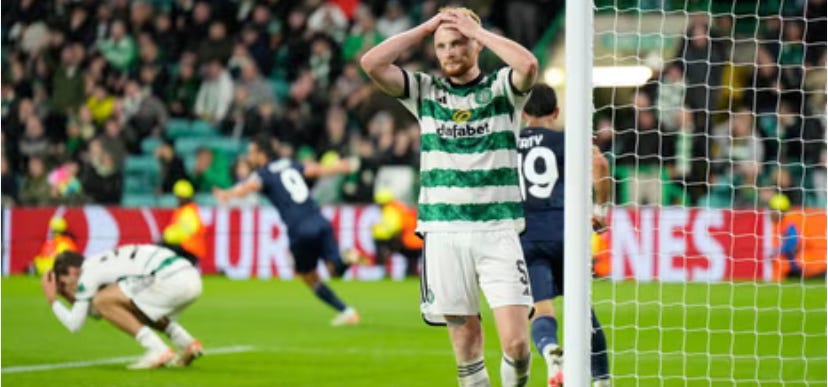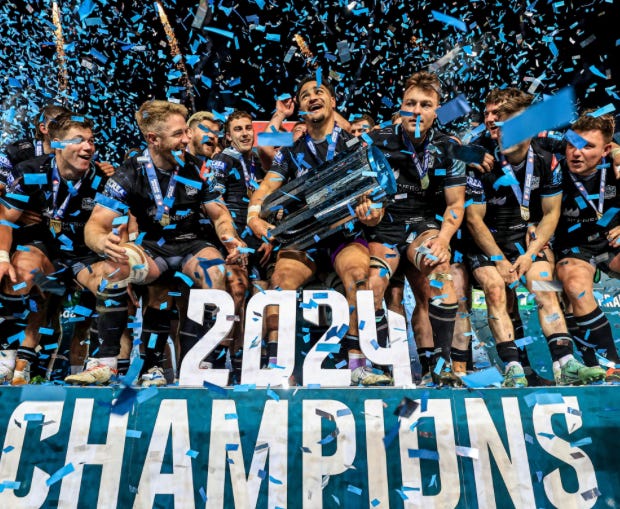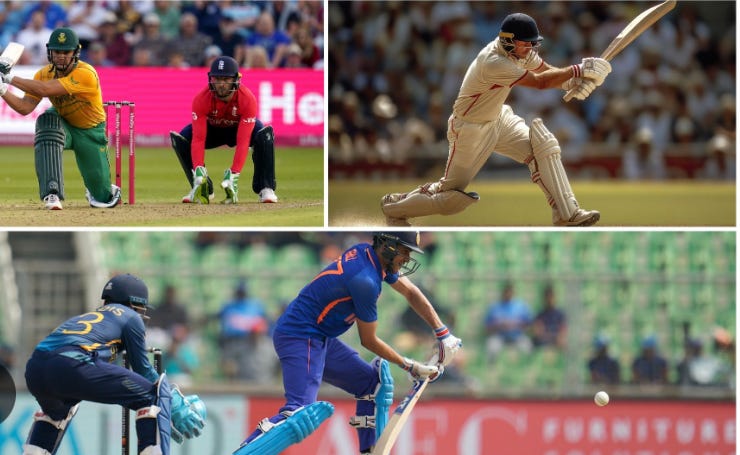Divided Loyalties?
In the modern world, is it more acceptable to follow more than one team in the same sport?
Divided Loyalties?
Club loyalty is something that has always seemed important to sports fans, particularly those who follow football. Going to the games, buying shirts and other merchandise and joining supporters’ clubs or federations are all ways that fans have traditionally shown their support for their chosen team, but are things on the verge of change? And, are things similar in other sports too?
In the digital age, fans have a wealth of football coverage at their fingertips and are easily able to follow teams from further afield as well as the exploits of particular players. Formats such as YouTube make it possible to find highlights of games or instances of great skill almost instantly after a match has finished. Young people particularly spend hours upon hours watching the ‘best bits’ of Messi, Ronaldo, Mbappe and Yamal.
Fans are no longer dependent on going to watch their local team in action to get their fix. Why rave the elements when you could enjoy a sunny Milanese afternoon from the comfort of your couch on TNT Sports? With this in mind, it is probably no surprise that a 2023 poll by Sportsbreaks.com suggests that 56% of British football fans follow more than one team.
It is worth noting however that even those who admit that they will follow multiple teams generally have ground-rules for doing so. These include not supporting another team in the same league as your own. It is seen as more acceptable to follow a team from a foreign country or one from the lower leagues or even non-league football, but not one your team is likely to have to play. Reasons for this could stem from having moved around the country yourself, having family or friends with ties to other teams or even just taking an interest in something you have seen on television.
I myself am a two club supporter. The first club that I fell in love with through the medium of television was Liverpool. I have written before of watching them in the 1992 FA Cup Final and never looking back. Despite the fact that there were no family ties to the club or any real reason other than that I had seen them first and they won, they were mine and I was forever stuck with them through good times and bad. If Sunderland had won that day, perhaps I would have been stuck with them. At least it would have pleased my father-in-law who is a Mackem through and through.
Mine was a somewhat unique situation in which I was learning to grow a love for a game that wasn’t really a big thing in my family. My dad enjoyed football and had followed Nottingham Forest for a bit when he was younger but wasn’t a fan by any stretch of the imagination and I had no older brothers or anything to follow in terms of club loyalty. In some ways I almost had a clean slate from which to start. Liverpool were my choice.
Over the years my fandom has developed into an obsession and I have had both wonderful and woeful times, as any fan does, in following them. I have seen brilliant players like Steven Gerrard and Mo Salah and awful signings like Bernard Diomede and Sean Dundee and I have seen the club begin to grow into a force once again. It has been an eventful journey and one that I cannot imagine not having been a part of.
However, I also have another love. One of my favourite things about football is the matchday experience itself and unfortunately for me I live nowhere near Liverpool which meant that I couldn’t scratch that particular itch with regular visits to Anfield. Upon moving to Dundee at the age of 5, there were a couple of local options from which I could have chosen but most of my new school friends followed Dundee United and there was a good history there, which I would learn much more about over the years, so they became my local team and easily sit side by side with the Reds in my affections.
My first visit to Tannadice was in the spring of 1993 and I still remember sitting at the front of the top tier, gazing down at the greenness and the players below, listening to the chants of the fans and watching the steam come from cups of tea or Bovril. I was engrossed by all of the sights and the sounds and wanted more and more. This was all helped by a 1-0 victory through a Jim McInally goal. I was determined to find out as much as possible about the players and the club and another obsession began to grow.
I went to the matches often with friends over the next few years and when I was old enough to go by myself got a season ticket and started travelling to some away matches too. I followed United until I moved away to university but always continued to keep an eye on results. Life moved me all over the place in intervening years but I am now back in Dundee and am a season ticket holder once again, greatly enjoying my fortnightly matchday experience.
Liverpool and United are the two teams I support, meaning the ones that I really care for, buy merchandise from, follow results with a passion and am desperate to watch whenever I can, but over the years and through my travels and people I have met there are also a number of other teams that I have developed an affection for as well.
Whilst living in London I went to see various teams including Charlton, West Ham and Fulham. I settled on Millwall as my team though as a good friend of mine was an ardent fan and there was no real chance of direct competition with Liverpool at that point. Games at the Den were always fun and there was a great atmosphere. I was always lucky not to witness any of the darker side of the club that they have become infamous for. I even got to play on the pitch once as part of a charity event with my own football team. Even now I live far away, I always look for their results each week.
There were also a number of occasions where I went to watch lower league football. Welling and Dartford were most local to me and I had some brilliant experiences going along to watch them when I had nothing else on. The fans were passionate about their teams but also accepting of the standard of football at that level. There was a friendly atmosphere and it was also nice to be able to stand with a pint and watch the match!
I have written before about watching Football Italia on Channel 4 growing up and I found a number of teams that I liked watching for various reasons from Fiorentina’s alluring purple shirts and the superb Batigol to the immense legendary players of AC Milan and the endless cool of the 90s Parma sides. I still keep an eye on all of them now.
There are also a number of other European and world teams that I have picked up a bit of a love for through watching countless amounts of televised football over the years. Some of these have been to do with an inability to watch a match without choosing one of the teams to root for and others are to do with particular players that I enjoyed watching playing for them. Ajax are one of these teams, driven from the Champions League winning team of 1995 and boosted when I visited the stadium on a school trip. Boca Juniors are another having watched Argentinian football highlights regularly on a Sunday as a teenager. These are not teams that I would say I support, but I do follow how they are getting on and would like them to win.
As mentioned above, most of my friends are also Dundee United fans but some, like me, have other teams too. Interestingly, Everton are a team that quite a few of them support as their ‘English’ team, mostly through familial ties. There is also a bit of a Scottish connection with managers and players, including former Dundee United hero Duncan Ferguson. This has led to interesting conversations and ribbing over the years due to my love of their city neighbours.
Even those who don’t have another team that they watch avidly will still watch English football and know much about it. Some if this is to do with a general love if the game, some to do with people liking a flutter and wanting to know more about what they can bet on, some to do with their own children being interested in particular teams and finally some to do with the rise of fantasy football and a desire to win our local league.
Whilst all of this is absolutely fine when there is no direct rivalry between teams followed, more of a divide is found when it comes to European competition. The majority of football fans I speak to regularly feel that they wouldn’t want another team from their country to do well in Europe as they are still seen as the enemy. This seemed to be particularly prevalent when the Old Firm (Rangers and Celtic) were discussed as it is perceived that their dominance over local competition is somewhat paid back when they come up against top European teams themselves. The same can be said of fans of the bigger English teams not wanting direct rivals to do well in other competitions.
This perception can however change slightly when it means that success for others can directly benefit their own team. Some supporters admit they quite like seeing Scottish teams do well in Europe because it’s good for Scottish football, with reference to helping the coefficient for Scotland overall and because this can be helpful to the national team in terms of seeding for events. Despite this, there is still a wariness of the extra money that rivals could potentially make which then could be used to make them stronger the next season. It is a bit of a Catch-22 situation.
People may be football mad and be willing to watch matches from almost anywhere and revel in delight at the ability of the best players in the world but fans are a territorial bunch and as soon as the future prospects of their own club may be affected or a rival is able to prosper, the shutters come down and enough is enough.
These views seem to contrast directly with those of rugby fans that I know however who, overall, seem far more willing to follow, and even lend support to, other teams, even those in the same league as themselves either in domestic or European competition. According to fans, it is seen that other teams from their country doing well will also benefit the performance of the national team by allowing players to have more big game experience. This is taken as a positive by all.
An example would be the recent success of the Glasgow Warriors team in winning the United Rugby Championship, which seems to have been celebrated just as much by Edinburgh fans as those of Glasgow themselves. One supporter of Edinburgh that I spoke to said that although he is a supporter of capital team, he would “also follow Glasgow as they are the other Scottish team, so I am very interested in their progress as it directly influences the Scotland team as well so there’s lots of synergies between the three teams [Edinburgh, Glasgow and Scotland].”
This is an interesting contrast between feelings in football and rugby and perhaps highlights the more tribal nature of the former and the collegial feel of the latter. These sentiments are echoed by other rugby fans who have spoken to me of sitting happily at huge matches alongside fans wearing the shirts of the opposition team and even those who are not playing that day. This does not seem like something that could happen in football, particularly with local rivals.
This is not to say that fierce rivalries do not exist in rugby though. The recent Scottish success rate in the Calcutta Cup over England has turned the tide in terms of international standing, until last week at least, and both nations are always desperate to win. There isn’t the same level of hatred that sometimes exists in football but a rivalry is there nonetheless and many fans would want the opposition team to win when their rivals play others too.
The same could potentially be said in cricket too. There are many different formats these days which would logically lead supporters to have more than one team. Just on a basic level, British fans of the sport would follow their nation (nominally England) in the different forms plus a county team and then their local team in The Hundred. As well as this there is a wealth of cricket shown from Australia where competitions like The Bash have a huge following and there is also the Indian Premier League (IPL). It stands to reason that a cricket follower then may have up to five teams at least that they choose to follow on a regular basis.
There would be no stigma to this whatsoever due to the separate nature of the teams and competitions taking place and this is a completely different way to how football works although comparable in a way to having different teams in different world leagues. Again, I suppose that much of the interpretation of this would come down to beliefs on the differences between ‘supporting’ and ‘following’ a team.
Again though, like rugby, there will always be deep rooted rivalries in cricket such as the battle for the Ashes between England and Australia or the ongoing quest for dominance between India and Pakistan where the game often seems to be more like a religion than a sport. However, even for these games, crowds are largely mixed and there seems to be more of an element of banter rather than the hatred shown elsewhere.
Following multiple teams in the same sport doesn’t quite happen in the same way in American sports since there is generally only one major league to follow in each of them and therefore there wouldn’t be much sense in supporting two teams that could easily come into direct competition. However, what the Americans do have that we don’t so much in Europe is a huge following of teams representing high schools and colleges and therefore, once again, it makes sense that people may have more than one team but in different formats.
Whilst club loyalties will always run deep in all sports, modern fans seem more open to welcoming success for others and even following or actively supporting other teams if it falls within certain parameters. Whether this is something that will continue to increase as technology further opens up each game remains to be seen.

